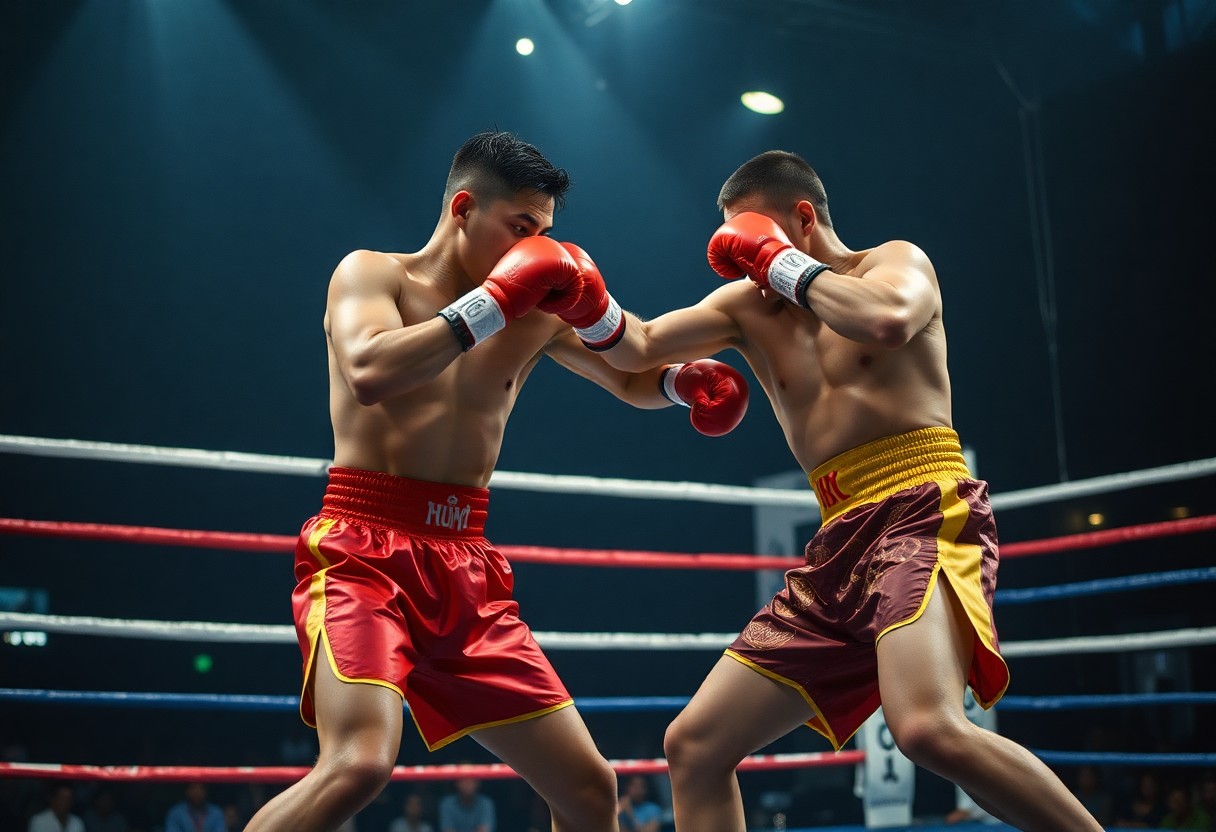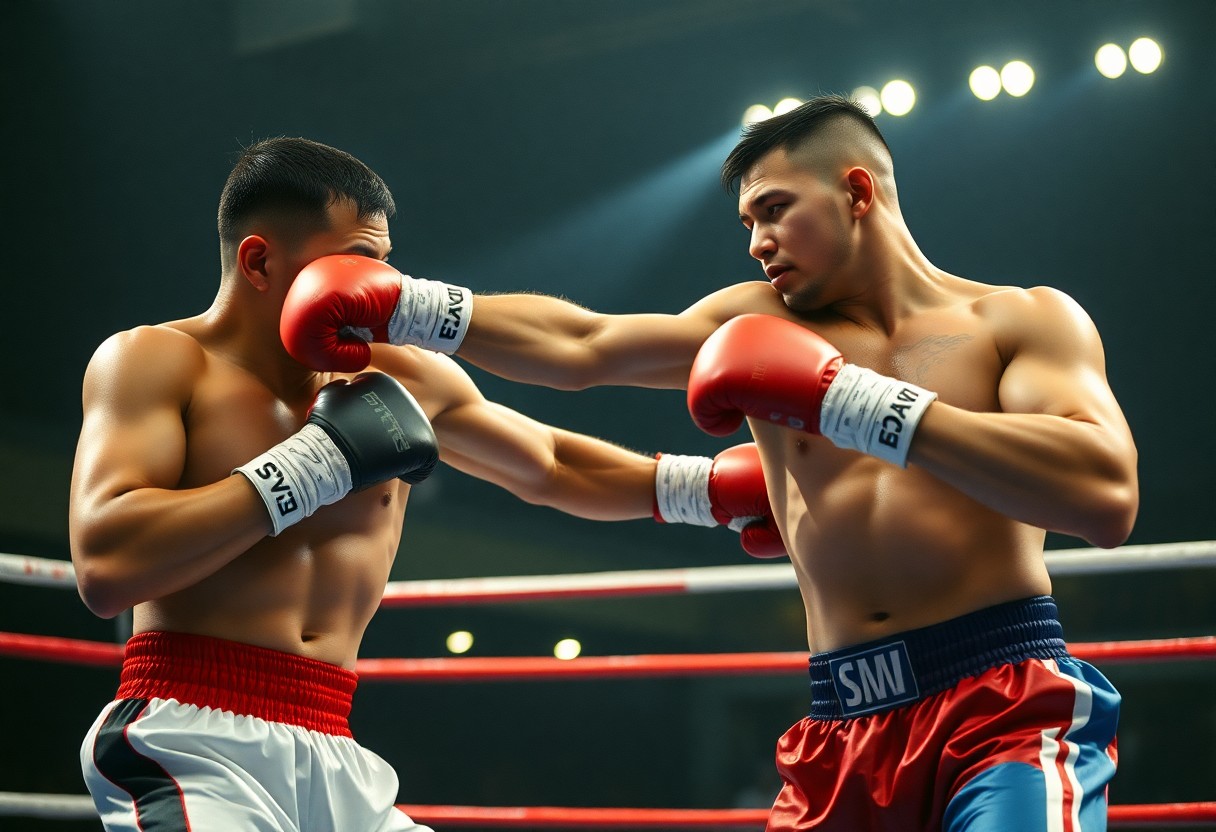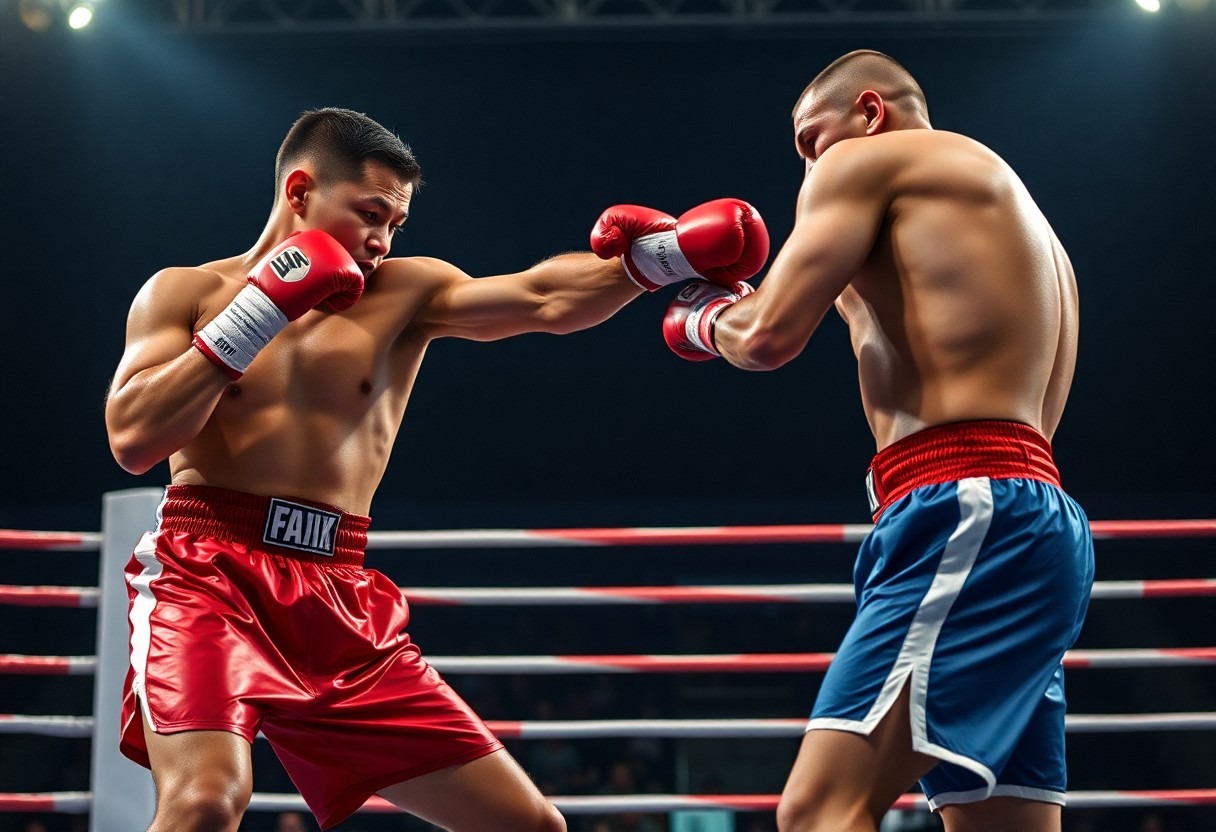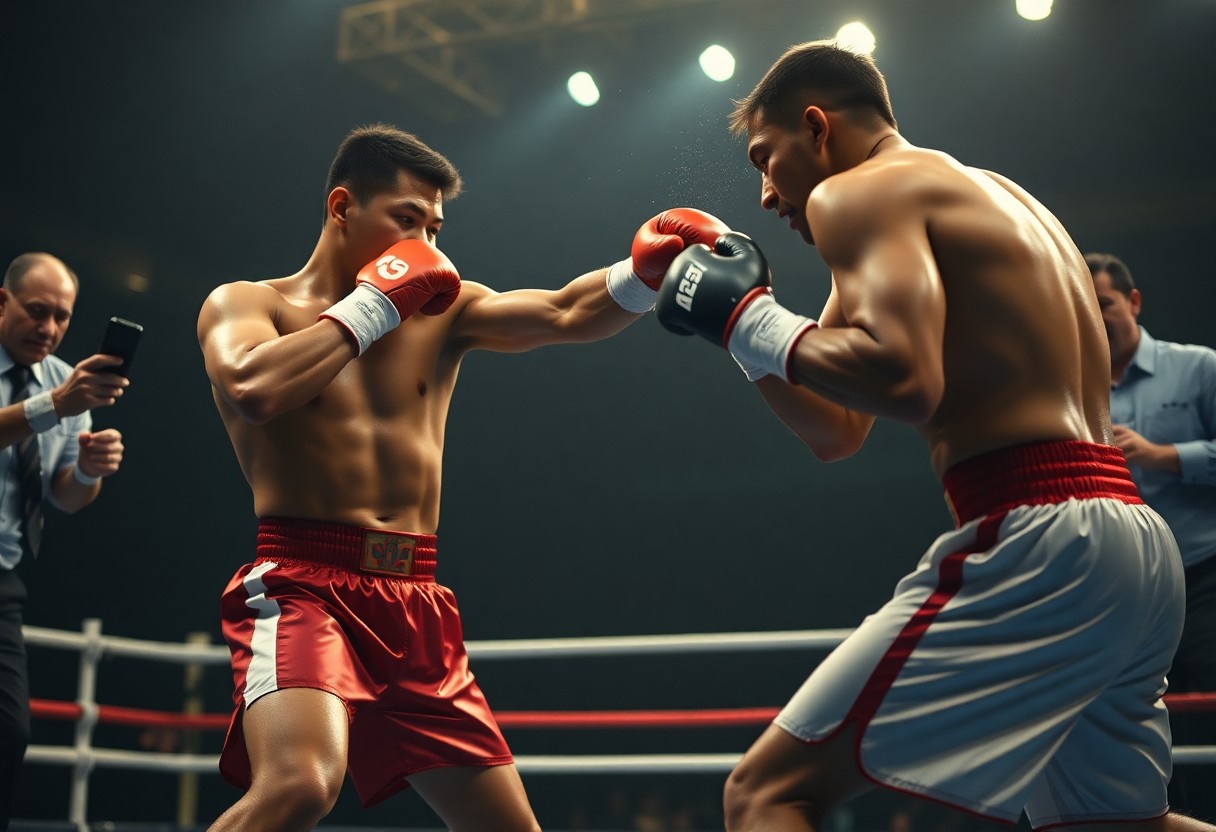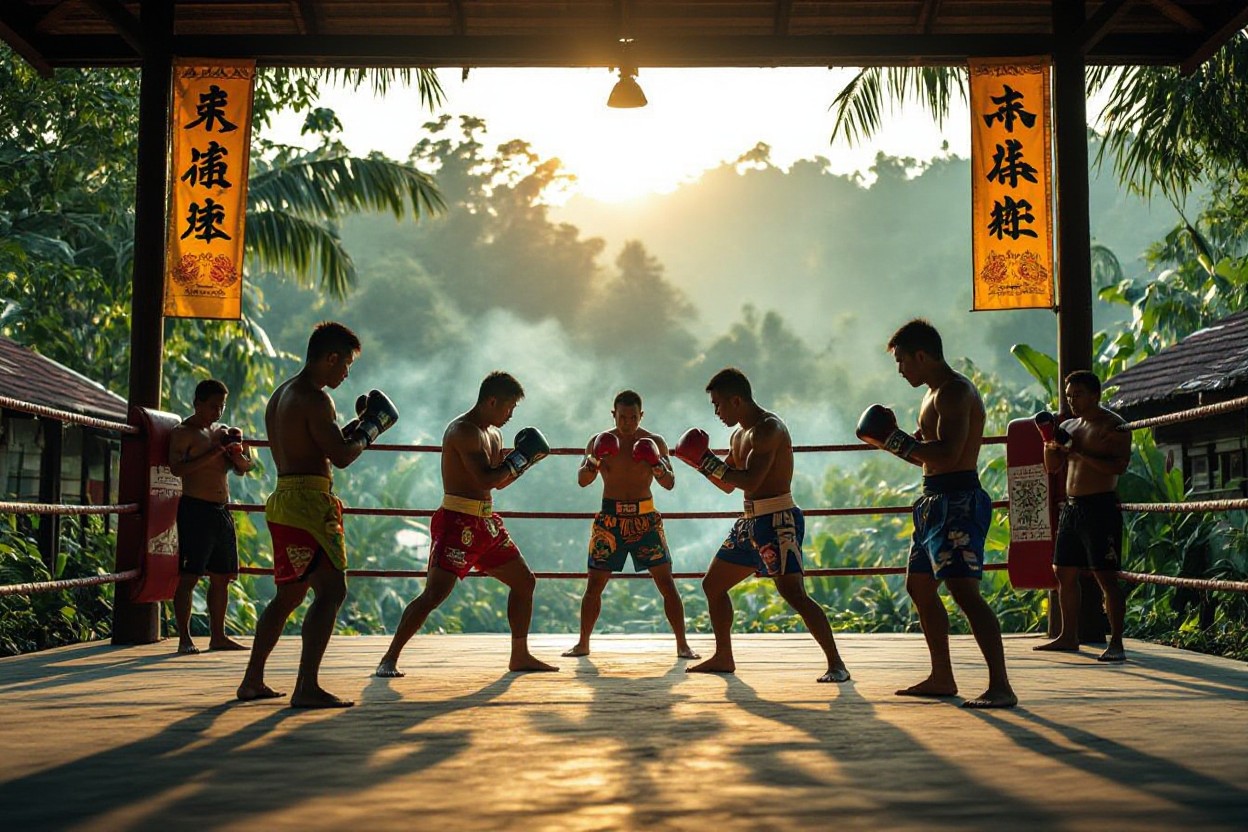
Experience the raw intensity of authentic Muay Thai training as you immerse yourself in Thailand’s martial arts culture. Your journey at a Thai boxing camp will challenge you both physically and mentally, pushing your limits beyond what you thought possible. From twice-daily training sessions under the scorching Thai sun to learning ancient techniques from seasoned fighters, your time at a Muay Thai camp will transform your approach to combat sports. While the training can be brutally demanding, you’ll find yourself surrounded by like-minded athletes from around the world, all sharing the same passion for the art of eight limbs.
What Makes Thailand the Epicenter of Muay Thai Training
Thailand’s position as the global hub for Muay Thai training stems from its unmatched combination of authentic training methods, world-class fighters, and deeply rooted cultural heritage. The country offers over 1,000 dedicated Muay Thai camps, ranging from traditional rural gyms to modern facilities in tourist hotspots. Training in Thailand provides you with direct access to championship-level instructors at a fraction of Western prices, while immersing you in the sport’s spiritual homeland.
Historical Significance of Muay Thai in Thai Culture
Muay Thai’s roots stretch back centuries as Thailand’s traditional martial art and method of warfare. Known as the “Art of Eight Limbs,” it evolved from the ancient battlefield technique Muay Boran into today’s national sport. You’ll find Muay Thai deeply woven into daily Thai life, from children training at local temples to prime-time stadium broadcasts. This cultural immersion enhances your training experience with authentic traditions, rituals, and respect for the art’s heritage.
The Influence of Local Fighters and Champions
Thai champions serve as living legends in their communities, inspiring generations of fighters and elevating training standards across the country. Legendary names like Saenchai, Buakaw, and Yodsanklai have transformed local gyms into international training destinations. These champions often teach at camps, giving you the rare opportunity to learn directly from the sport’s elite practitioners.
Training alongside active fighters provides you with invaluable insights into authentic Thai techniques and training methods. You’ll witness their dedication during twice-daily training sessions, strict dieting regimens, and pre-fight preparations. Many camps host regular fight nights, where you can watch your training partners compete and potentially step into the ring yourself, fully embracing the fighter’s lifestyle that has produced countless champions.
The Structure of a Typical Training Camp Experience
Training camps in Thailand follow a well-established structure refined over decades of teaching foreign students. Most camps operate six days per week, with Sunday typically reserved for rest. Your accommodation usually sits within walking distance of the training area, creating an immersive environment focused entirely on Muay Thai development.
Daily Training Regimens: What to Expect
Your day begins early with a 6:30 AM session lasting 2-3 hours, incorporating intense cardio, pad work, bag training, and clinching. The afternoon session starts around 4 PM, following a similar format but often with more technical focus and sparring. Between sessions, you’ll have time for rest, meals, and recovery – crucial components for handling the physically demanding schedule of authentic Thai training.
Variations Between Camps: Styles, Focus, and Philosophies
Each camp carries its own distinct identity and training approach. Some facilities emphasize traditional Thai techniques and cultural immersion, while others cater more to western-style fighting or competition preparation. Your choice of camp will significantly impact your training experience and skill development.
Northern camps often favor technical precision and defensive skills, while southern camps typically emphasize aggressive fighting styles and power techniques. Bangkok’s camps generally offer a blend of both, with many featuring former stadium champions as trainers. Some facilities specialize in preparing fighters for professional competition, while others focus on fitness and recreational training for beginners. The trainer-to-student ratio varies significantly, from personalized one-on-one attention at boutique camps to larger group settings at popular training centers.
Beyond the Ring: Cultural Immersion and Lifestyle
Training in Thailand offers more than just Muay Thai skills – you’ll find yourself immersed in a rich tapestry of local customs, traditions, and daily life. From participating in morning alms-giving to Buddhist temples to learning basic Thai phrases, your experience extends far beyond the training camp walls. Many fighters develop deep connections with their Thai trainers and fellow students, creating a global community united by their passion for the art.
Living Conditions: Accommodations and Amenities
Most camps offer a range of accommodation options, from basic shared rooms to private bungalows with air conditioning. Your living space typically includes necessary amenities like Wi-Fi, laundry services, and communal areas. Higher-end camps feature swimming pools and recovery facilities, while traditional camps provide simpler, authentic settings. You’ll find yourself adapting to the rhythm of camp life, where early mornings and structured routines become second nature.
Culinary Adventures: Nutrition and Local Cuisine
Thai food becomes an integral part of your training journey. Camp meals often feature protein-rich dishes, fresh vegetables, and local fruits to fuel your workouts. You’ll discover the perfect balance between traditional Thai flavors and athletic nutrition requirements, with many camps offering specialized meal plans.
Local markets and street food vendors near camps provide authentic culinary experiences, where you can sample regional specialties like som tam (papaya salad), khao man gai (chicken rice), and fresh coconut water. Many camps either include meal plans or partner with nearby restaurants that understand fighters’ nutritional needs. Your trainers might even share their favorite post-training spots, offering guidance on which dishes best support your training goals while introducing you to Thailand’s renowned food culture.
Training with Purpose: Setting and Achieving Goals
Successful training at a Muay Thai camp requires clear direction and measurable objectives. Setting specific goals – whether it’s mastering the teep kick within two weeks or improving your clinch technique – gives your training sessions structure and meaning. Your instructors will help you create realistic timelines and milestone markers to track your development throughout your stay.
Tailored Programs: Addressing Individual Needs
Top Muay Thai camps customize training approaches based on your current skill level, physical condition, and personal objectives. Your program might emphasize technical refinement, cardiovascular conditioning, or fight preparation, depending on your goals. Trainers adjust the intensity, complexity, and focus of exercises to match your progression, ensuring you get the most value from each session.
Measuring Progress: Skills, Fitness, and Mindset
Progress tracking at Thai camps goes beyond physical improvements. Trainers monitor your technical execution, stamina levels, and mental resilience through daily assessments. You’ll notice advancement in areas like pad work accuracy, sparring confidence, and overall body conditioning. Many camps use video analysis and performance metrics to document your journey.
The evaluation process typically includes regular check-ins with your trainers, who provide detailed feedback on your form, power generation, and defensive capabilities. They’ll document improvements in your cardiovascular endurance through timed drills and note changes in your sparring technique. Most camps offer weekly progress reviews, helping you adjust your training focus and celebrate achievements while identifying areas needing additional attention.
Insights from Former Camp Attendees
Success Stories: Transformations and Achievements
Former camp attendees consistently report dramatic physical and mental transformations within just 2-3 weeks of training. Many have shed 10-15 pounds while gaining noticeable muscle definition. Beyond physical changes, students describe newfound mental resilience and discipline that carries over into their daily lives. One standout example is Sarah, who progressed from complete beginner to competing in her first amateur fight within six months of training at a Bangkok camp.
Common Challenges Encountered by Newcomers
The initial week at a Muay Thai camp often presents significant physical and cultural adjustments. Your body will need time to adapt to training twice daily in high humidity, while navigating language barriers and traditional Thai training methods. The early morning start times, intense conditioning sessions, and unfamiliar dietary changes test your commitment level.
Most newcomers struggle with the rapid pace of technical instruction and the physical demands of traditional Thai-style warmups. Your muscles will likely experience unprecedented soreness during the first few days, particularly from repetitive kick drills and clinch work. The cultural expectation of pushing through fatigue, rather than taking breaks, can feel overwhelming. However, these challenges typically subside after 7-10 days as your body acclimates to the training rhythm and intensity levels.
Summing up
Summing up, your Muay Thai training experience in Thailand will challenge and transform you both physically and mentally. You’ll immerse yourself in intensive daily routines, from early morning runs to evening sparring sessions. Your training will blend traditional techniques with modern conditioning methods while you learn from experienced Thai trainers. Whether you’re a beginner or an advanced practitioner, you’ll find yourself adapting to the local training culture, improving your skills, and gaining a deeper appreciation for this ancient martial art. The authentic camp experience will leave you with lasting memories and valuable fighting knowledge.

